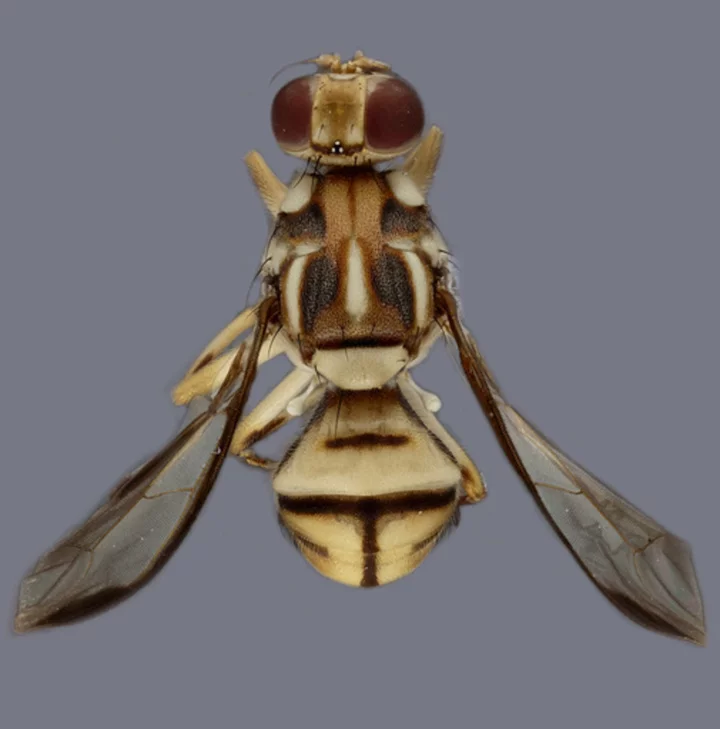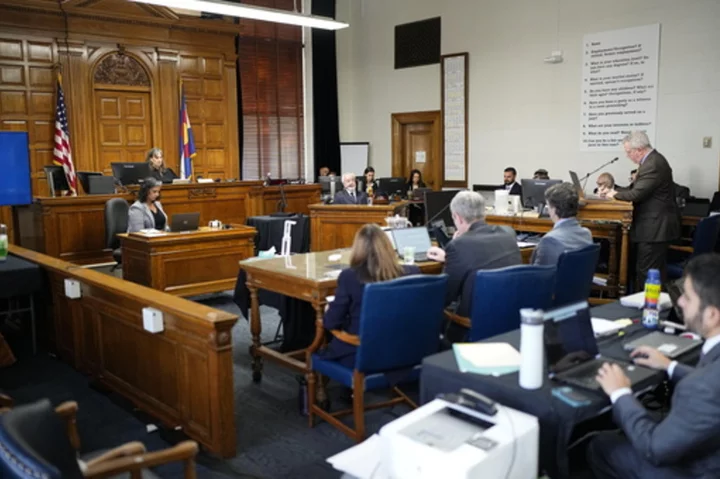LOS ANGELES (AP) — The discovery of nearly 30 invasive fruit flies has prompted a produce quarantine affecting over 79 square miles (204.6 square kilometers) of Los Angeles County as state and local officials try to stop the fly from spreading and hurting California's fruit and vegetable industry.
It's the first quarantine ever in the Western Hemisphere for the Tau fruit fly, which is native to Asia, agriculture officials said. The fly was discovered on June 6 in the unincorporated area of Stevenson Ranch, about 30 miles (48 kilometers) north of downtown Los Angeles, and was likely brought by a traveler bringing uninspected produce into California, officials said.
The California Department of Food and Agriculture announced the quarantine last week.
“We’re a big conduit in terms of shipping and trade,” said Ken Pellman, spokesperson for Los Angeles County’s Agricultural Commission. “We want to keep an eye out and prevent stuff from coming here in the first place, and if it comes here, to eradicate it quickly before it spreads.”
Avocadoes, tomatoes and watermelons are just a few of the roughly 100 fruits that can play host to the fly, making it easier to gain a foothold. If it spreads, the fly could destroy crops and prompt farmers to spray more pesticides to maintain their yields.
For now, the infestation has been contained, but officials from county and state agriculture departments are urging residents not to take their produce, whether grown at their properties or purchased at a market, outside their homes. Farmers market vendors have employed netting systems designed to catch the flies and protect produce as they travel throughout the county.
“It's protecting the growers at the farmers market too, because they don’t want to transport the fly back to their farms,” Pellman said.
Because of Los Angeles’ proximity to the state’s vital agricultural industry, the county already has a fruit fly trapping program in place that allowed the departments to detect and close in on the Tau, a yellow and black fly with clear wings.
Traps have now been set throughout the area in an effort to eradicate the fly's population before it spreads. Any produce or plants within 200 meters (656 feet) of another detected Tau fly will be inspected for larvae, county officials said.
”It’s an ounce of prevention versus a pound of cure," Pellman said.
Brian Brown, Curator of Entomology at the Los Angeles Natural History Museum, has researched flies throughout his career. If fruit flies get out of control, they can hurt California’s produce exports in the national and world market, he said.
“Once these things get going in a large area they’re almost impossible to eradicate,” he said.









